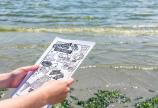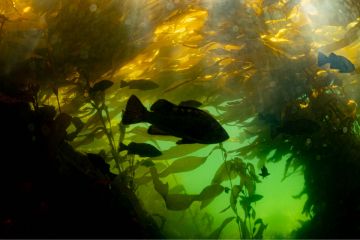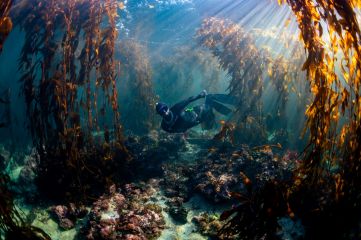Sounds of science: finding hope for the ocean with fish sounds
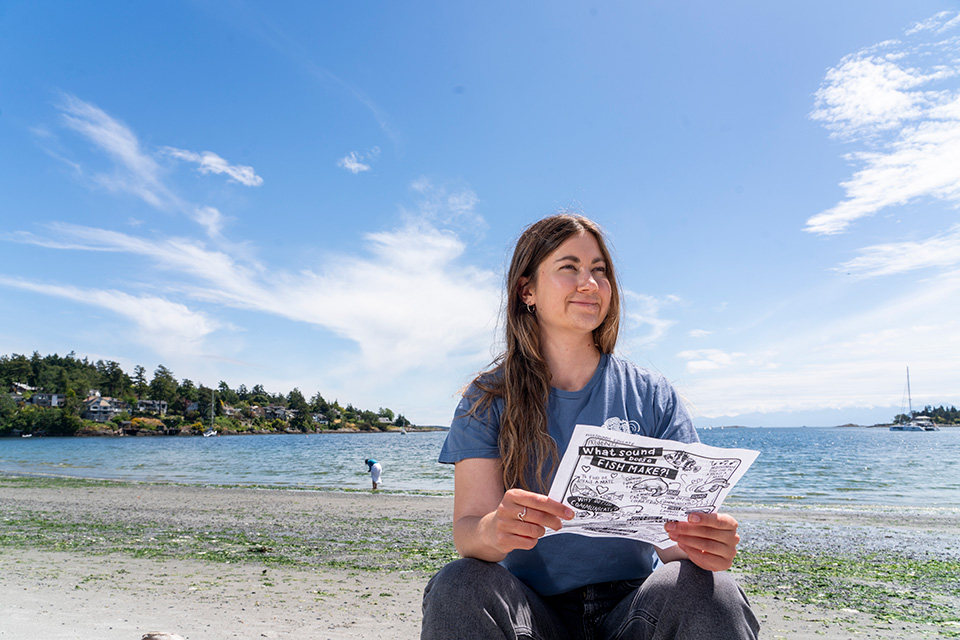
Vanier scholar Hailey Davies has found her calling. She choose UVic, she did so because she knew it would keep her close to the ocean and give her many opportunities to gain hands on experiences working within marine environments. During her undergrad, she completed two directed studies and a full field semester at Bamfield Marine Science Centre. During grad studies, she gained further experiential learning opportunities when she began conducting rockfish fieldwork off Entrance Island. More recently she is co-leading an education program called FishSounds Educate; an initiative that engages all ages in ocean literacy through the exploration of recorded fish sounds and interactive games.
We spoke with Hailey before World Ocean Day to ask her a few questions about her research, her outreach work, and her perspectives on the future of the ocean:
Can we start with your most interesting fish fact?
Fishes have their own unique sounds to communicate and currently over 1000 species are known to make sounds. There are likely many more sound-producing fishes out there that we just haven’t researched or discovered yet. Another fun fact is that the lifespans of fishes can be quite diverse. For example, some species of rockfish can live for just ten years, while others can live for over 200 years. Greenland sharks are even thought to have lifespans of around 400 years.
Finally, one fact that has come up a lot in our FishSounds Educate program is that some species, like herring, communicate with farts. Kids love this one.
What drew you to this area of study and research?
I would say it was animal welfare that initially inspired me. I’ve always cared about this topic, especially how aquatic animals like fishes and invertebrates are impacted because these species are often overlooked. Fish welfare and marine conservation efforts are critical since there are many populations that are threatened by human impacts.
My research and my outreach work on Fishsounds allows me to get into different environments and share something I’m passionate about with others, which is so rewarding. I’m often impressed by how much interest and engagement we see when we talk to kids and the public about the ocean, marine life, and some of the current challenges for these species, like noise pollution.
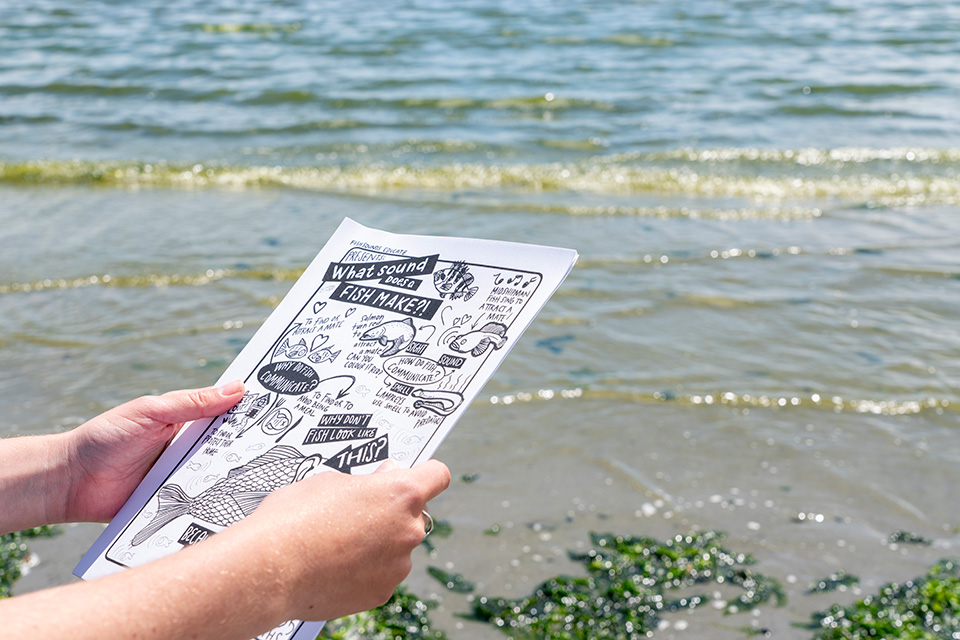
What is noise pollution?
I would consider noise pollution to be any human-caused sounds with the potential to impact the health and well-being of marine animals, including fishes, invertebrates, and mammals. These sounds, such as ship noise, can occur at similar frequencies as the ones animals use to communicate, which can “mask” their sound production and make it hard for them to hear each other.
Noise pollution can also affect marine animal behaviour, causing them to avoid certain areas, limiting their reproduction, or ability to feed. It can even impact their biochemistry, genetics, which can affect their overall ability to survive.
What can we do about noise pollution?
There’s a multitude of things that can be done about this. One of the biggest things we can do for collective action is to support emerging noise pollution policies. On a smaller scale, if you’re out on the water, you can educate yourself about Marine Protected Areas and Rockfish Conservation Areas that can be avoided. Also, considering the time of year you’re out on the water can be helpful, as it might overlap with the reproductive seasons of fishes and other animals.
I would also add, shopping closer to home is a good way to help reduce noise in the ocean. By sourcing things locally, we don’t see products travelling here from far away on big ships that can be some of the largest contributors to noise pollution.
What makes you hopeful for oceans and for climate?
Climate change has created a great many urgent and interconnected issues for the ocean. When your head is down and you’re working only on your research, sometimes the outlook can feel a little bleak.
However, getting to meet lots of different people, and young minds especially, through the outreach component of my research gives me hope. I’ve interacted with many intelligent, creative, and environmentally-minded young individuals over the past few years that makes me hopeful about future ocean conservation leaders.
Where do you see yourself and your work in 10 years?
I hope I’m still involved in marine science research; some combination of doing research, education and science communication. I care a lot about the ocean, and this is what I love to do.
Photos
In this story
Keywords: climate, environment, oceans, climate traction, children, youth, education, wildlife
People: Hailey Davies


